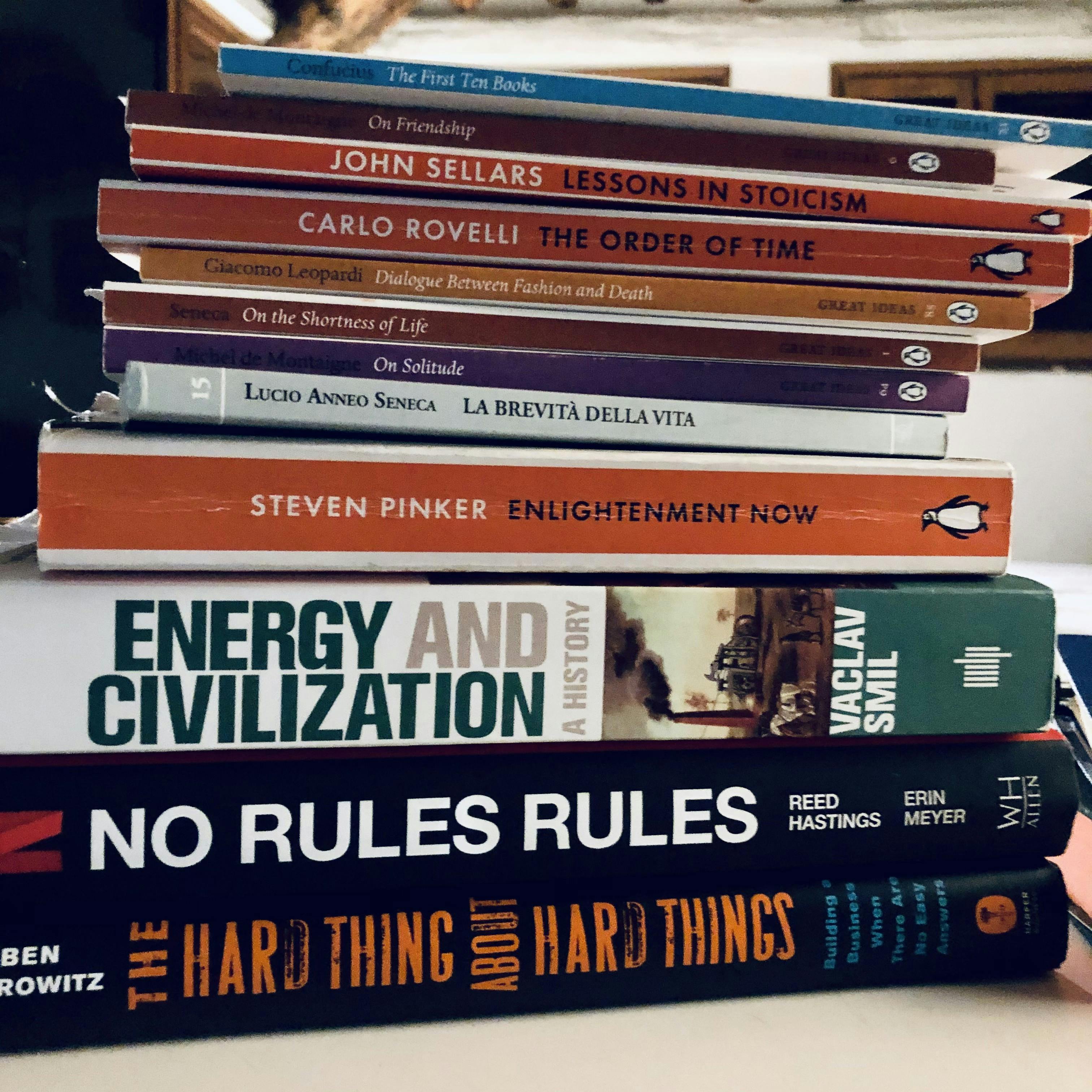2020 books review
Books that surprised and enlightened me
As I explained in my first “book review” of 2018, I always preferred reading— paper, physical — books rather than blog posts, tutorials, or watching videos.
2019 was a hectic year that left me not sufficient time to read as much as I wanted.
2019 was a hectic year that left me not sufficient time to read as much as I wanted.
I was able to catch-up in 2020 - no need to explain why - by reading over 20 books - non-technical, with some of them being particularly striking.
This article will briefly present the books that surprised, enlightened me and that I will remember and most likely read again in the future.
This article will briefly present the books that surprised, enlightened me and that I will remember and most likely read again in the future.
- Enlightenment now
- A Summer with Montaigne: On the Art of Living Well
- The accidental mind
- Lessons in Stoicism: What Ancient Philosophers Teach Us about How to Live
- No Rules Rules: Netflix and the Culture of Reinvention
- The Order of Time
- A Short History of Nearly Everything
Enlightenment now
Let’s start with a book especially relevant for 2020, which has been a very frustrating year full of disastrous events along with its intense news coverage.
I discovered “Enlightenment Now,” written by Steven Pinker, thanks to the Bill Gates recommendations list.
Like many people, I felt overwhelmed and lost by the quantity of information, reaching us every moment of our modern life.
I discovered “Enlightenment Now,” written by Steven Pinker, thanks to the Bill Gates recommendations list.
Like many people, I felt overwhelmed and lost by the quantity of information, reaching us every moment of our modern life.
“Enlightenment now” was promising to bring concrete facts and a good overview of the world’s current status, proving that, besides what all news says, things are getting better.
While getting thought it was not a piece of cake, because of its dense 576 pages of information - with many graphs, Steven Pinker delivered a magnificent book that changed my point of view of the modern world forever.
If you’re looking for some belief in humanity or only for more rationality, this book is made for you.
If you’re looking for some belief in humanity or only for more rationality, this book is made for you.
While many things need to be improved in the upcoming years, we have come a long way and accomplished many incredible things.
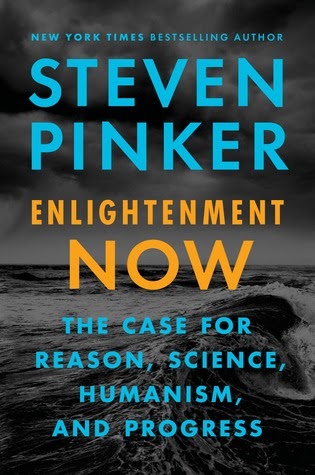
A Summer with Montaigne: On the Art of Living Well
I’ve never been the type of student who pays attention during the “French courses” (I grew up in France) while studying literature classics.
At the beginning of 2020, I decided to be curious and catch-up on my lack of french literature culture.
“A Summer with Montaigne,” written by Antoine Compagnon, is part of a series of small books (~140 pages) that cover the life and takeaways of the most influential french author, poet, and philosophers’ works (Proust, Baudelaire, Montaigne and more).
“A Summer with Montaigne,” written by Antoine Compagnon, is part of a series of small books (~140 pages) that cover the life and takeaways of the most influential french author, poet, and philosophers’ works (Proust, Baudelaire, Montaigne and more).
I fancy those kinds of books which are easier to read than reading the author’s pieces.
I’ve been transported by Montaigne’s life and discovered his values and perspective of different aspects of life.
If you are looking for a “chill under the sun with a cocktail book,” I advise this book to discover the “art of living well.”
If you are looking for a “chill under the sun with a cocktail book,” I advise this book to discover the “art of living well.”

Note: My favorite of the series was the “Summer with Proust,” covering Proust's piece “In search of lost time.”
However, only the Montaigne book has been translated from French to English for now.
The accidental mind
This book is my all-time favorite book.
That’s the reason why I read it for the second time this year - my friends start to get seriously annoyed by me bringing it in discussions.
“The accidental mind,” by David Linden, is a very entertaining and masterpiece of 276 pages covering the brain’s history and design.
“The accidental mind,” by David Linden, is a very entertaining and masterpiece of 276 pages covering the brain’s history and design.
The main point is to prove that the brain is not the “best computer ever designed” and that, while being very efficient at our day-to-day tasks, the brain design is deeply linked to evolution.
The most interesting being the numerous examples and explanations around the link between the design and physical aspect of the brain and what we are as human beings (social behavior, beliefs, etc.)
If you are curious about the brain and what defines us, I highly recommend giving “The accidental mind” a try. It is well written with a lot of fun facts along the way.
(Disclaimer: the two first chapters being a summary of biology basis are quite challenging to start with but not necessary for the rest of the book)
If you are curious about the brain and what defines us, I highly recommend giving “The accidental mind” a try. It is well written with a lot of fun facts along the way.
(Disclaimer: the two first chapters being a summary of biology basis are quite challenging to start with but not necessary for the rest of the book)
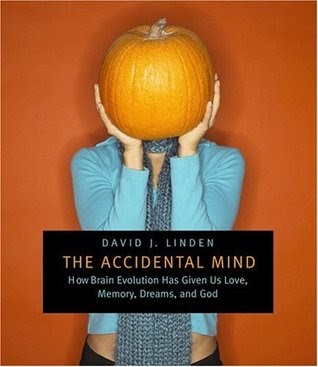
Lessons in Stoicism: What Ancient Philosophers Teach Us about How to Live
I discovered Stoicism 2 years ago thanks to a friend who recommended that I read Meditations by Marcus Aurelius and Discourses by Epictetus.
While most things (IMHO) of Stoicism do not apply to our modern life, I liked it as an inspirational source for stress/anxiety management.
While most things (IMHO) of Stoicism do not apply to our modern life, I liked it as an inspirational source for stress/anxiety management.
Reading the books of Marc Aurelius, Socrate or Epictetus is not the easiest and most exciting way to get to know Stoicism.
That’s for this reason that I highly recommend the following book: “Lessons in Stoicism: What Ancient Philosophers Teach Us about How to Live” by John Sellars.
That’s for this reason that I highly recommend the following book: “Lessons in Stoicism: What Ancient Philosophers Teach Us about How to Live” by John Sellars.
It is a straightforward small book (96 pages) to discover Stoicism and its history.
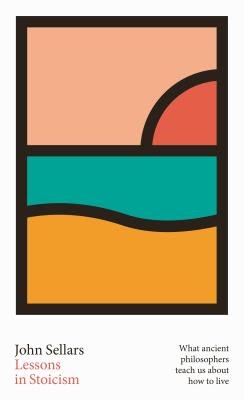
No Rules Rules: Netflix and the Culture of Reinvention
While I promised myself not to read any work-related book this year, my good friend Jonas convinced me to read this one.
“No Rules Rules: Netflix and the Culture of Reinvention” by Reed Hastings is a book guiding us through Netflix’s genesis and how its culture helps its success.
“No Rules Rules: Netflix and the Culture of Reinvention” by Reed Hastings is a book guiding us through Netflix’s genesis and how its culture helps its success.
I joined companies like Dashlane or Algolia for the incredible culture, and for this reason, I had high expectations for this book.
While most things explained in this book do not apply to most companies (IMHO), I found this book very inspiring and full of learnings; here are some of my favorite:
- Cultural differences in international companies (for example: over multiple continents) are real and need work and total consideration.
- In an ideal company, you won’t need processes (for example, travel policy) to understand its interest.
- Innovation is a cultural thing that starts people feeling free to make a decision aligned with the company interests without involving the whole hierarchy.
This book made me realize more clearly what kind of company I want to work for or build in the future.
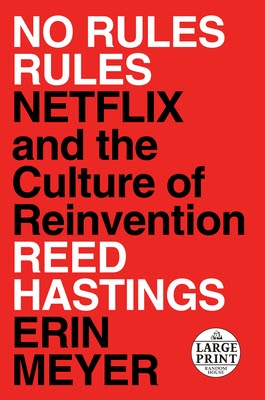
The Order of Time
This small book (240 pages), by Carlo Rovelli, is a perfect “before sleeping book” that, like Sapiens, made me realize all the imaginary humanity had to put in place to evolve: time is one of them.
This book is a curiosity book that will, at worst, give you a panic attack, at best, make you realize how time is a fantastic story.
(Disclaimer: the end of the book involve some quantum physics well-written explanations which, to be honest, got me lost a bit before the end)
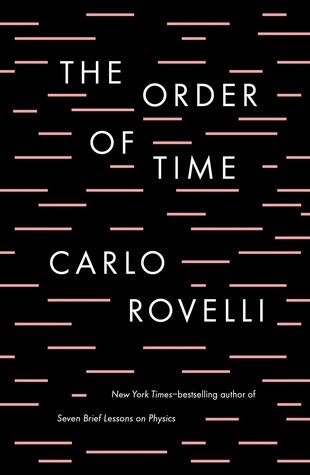
A Short History of Nearly Everything
Knowing my aversion to science curiosity book, my great friend Praagya recommend me to read “A Short History of Nearly Everything” by Bill Bryson, a bible of science history full of exciting and unexpected facts.
This intense book (544 condensed pages with no pictures) will answer all your questions on how we end-up measuring earth dimension, weight, or age, with numerous historical details on discoveries, from Darwin to Einstein and many more!
I admit that this book is not easy to get through; you will most likely end-up reminding 1% of the content but, what an exciting journey to enroll!
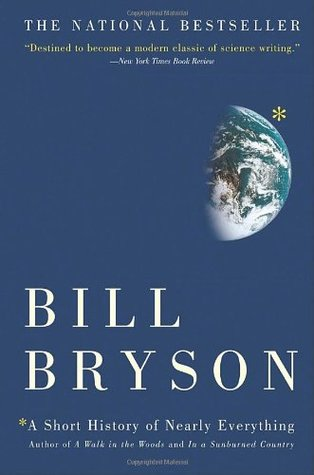
I am so grateful for all of my friends’ recommendations and discovering the Penguin Books publisher that publishes the most exciting books I’ve read this year.
I hope that I’ll get you to discover a book for your 2021’s reading list!
Feel free to reach out to me on Twitter and suggest some books; I am always searching for new reading moments.
The journey ahead: 2021’s reading list
Here are some books that I plan - or already started to - read in 2021:
- Thinking, fast and slow by Daniel Kahneman
- Energy and Civilization: A History, by Vaclav Smil
- Outliers: The Story of Success, by Malcolm Gladwell
- The Road Ahead, by Bill Gates
- What You Do Is Who You Are: How to Create Your Business Culture, by Ben Horowitz
- A Brief History of Time, by Stephen Hawking
- “A summer with Pascal” and “A summer with Machiavel,” by Antoine Compagnon.
We use cookies to collect statistics through Google Analytics.

